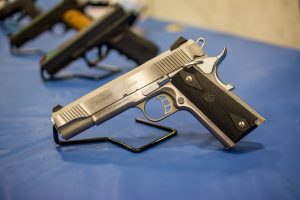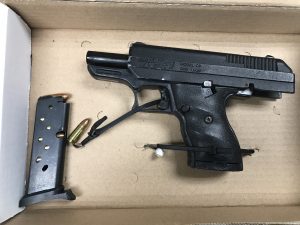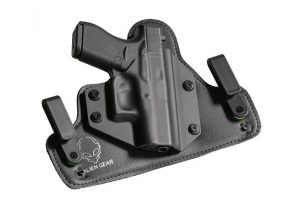 Roughly ten years ago Maryland lawmakers passed the Firearm Safety Act of 2013. For the last decade anyone who wished to purchase a handgun in Maryland was forced to apply to the State Police for Handgun Qualification License or HQL. There were several requirements for obtaining a HQL, with the first being eligibility to own and possess any type of firearm. In Maryland this meant the applicant must have been at least 21 years old and have no prior convictions for an offense that carried a maximum penalty of two years or more. Additionally, all Maryland HQL applicants must have completed a four-hour gun safety course that included firing an actual round and passing a background check. The background check mandated that the applicant be fingerprinted, and any prior criminal or domestic violence related cases that show up were be considered. There is no statute of limitations for prior convictions, as we have seen applicants denied for 40 and even 50-year-old criminal convictions. Once the State Police approved a person for an HQL, he or she would be permitted to purchase a handgun provided the appropriate federal ATF forms are also filled out properly. In Maryland an HQL did not give a purchaser the right to carry or transport a handgun or any firearm for that matter. A person who is caught driving with or carrying a firearm without a concealed carry permit will likely be arrested and charged regardless of whether they held a valid HQL. Possessing an HQL potentially helped in mitigation, but it was never a defense to a firearm possession charge.
Roughly ten years ago Maryland lawmakers passed the Firearm Safety Act of 2013. For the last decade anyone who wished to purchase a handgun in Maryland was forced to apply to the State Police for Handgun Qualification License or HQL. There were several requirements for obtaining a HQL, with the first being eligibility to own and possess any type of firearm. In Maryland this meant the applicant must have been at least 21 years old and have no prior convictions for an offense that carried a maximum penalty of two years or more. Additionally, all Maryland HQL applicants must have completed a four-hour gun safety course that included firing an actual round and passing a background check. The background check mandated that the applicant be fingerprinted, and any prior criminal or domestic violence related cases that show up were be considered. There is no statute of limitations for prior convictions, as we have seen applicants denied for 40 and even 50-year-old criminal convictions. Once the State Police approved a person for an HQL, he or she would be permitted to purchase a handgun provided the appropriate federal ATF forms are also filled out properly. In Maryland an HQL did not give a purchaser the right to carry or transport a handgun or any firearm for that matter. A person who is caught driving with or carrying a firearm without a concealed carry permit will likely be arrested and charged regardless of whether they held a valid HQL. Possessing an HQL potentially helped in mitigation, but it was never a defense to a firearm possession charge.
Maryland Handgun Qualification Licenses have been much easier to obtain than wear and carry permits, but the 2022 Supreme Court decision in Bruen drastically turned the tide. These days in Maryland a large percentage of HQL holders were able to obtain a carry permit if they completed additional gun education and safety requirements. Lately we have received more calls about HQL denials than wear and carry permit denials, but as of this week we may never field a call about a HQL denial again. On Tuesday a federal appeals court struck down the entire HQL policy, and specifically called out the background check requirement that has forced law abiding gun purchasers to wait a minimum of one month before being able to obtain a handgun. The appeals court opined that the state failed to demonstrate any historical requirement that a citizen receive advance permission to purchase a firearm in Maryland. The court stated a person should be able to purchase a firearm if they feel they are in danger and being forced to wait 30 days or more is unacceptable. The wait time is exactly what supporters of the HQL policy have lauded as an effective tool in preventing gun violence. The Governor and the Mayor of Baltimore have expressed displeasure over the ruling, while the gun lobby is celebrating a major victory. Maryland is one of a dozen or so states that require gun purchasers to pass strict background checks, and this number could be zero within a year if the Supreme Court agrees with this decision out of the Richmond federal court.
The Blog will continue to follow this story as it will generate a ton of attention over the next few months. The legislature begins its session in January and there are bound to be reactive attempts to keep Maryland a strict gun law state. Federal courts can intervene when laws are deemed to restrict the Second Amendment, but the courts are generally not able to interfere with the harsh punishments that Maryland provides for gun offenders. Anyone caught carrying or transporting a firearm without a license in Maryland still faces arrest and potential jail time depending on where the offense took place. This includes federal property such as the NIH, CMS and the various military bases in Maryland where even state carry permits are not valid. With respect to state cases, Prince George’s County, Baltimore City and Charles County often attempt to hand down the harshest punishments for gun offenses, but each case is different and there is always a legal argument that can be made in a gun case. If you or a loved one has been charged with a gun offense contact Maryland criminal defense lawyer Benjamin Herbst anytime for a free consultation. Benjamin specializes in Maryland gun crimes such as wear, transport and carry, possession by a prohibited person, minor in possession of a firearm and possession of a firearm at a federal facility. He is an experienced juvenile gun lawyer and has successfully argued for the dismissal of adult gun charges in state and federal court. Contact Benjamin anytime for a free consultation at 410-207-2598 and learn how you may be able to fight your gun charge.
 Criminal Defense Lawyer Blog
Criminal Defense Lawyer Blog





